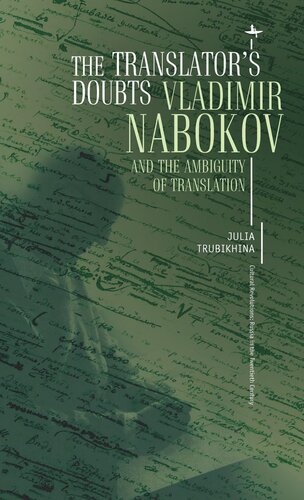

Most ebook files are in PDF format, so you can easily read them using various software such as Foxit Reader or directly on the Google Chrome browser.
Some ebook files are released by publishers in other formats such as .awz, .mobi, .epub, .fb2, etc. You may need to install specific software to read these formats on mobile/PC, such as Calibre.
Please read the tutorial at this link: https://ebookbell.com/faq
We offer FREE conversion to the popular formats you request; however, this may take some time. Therefore, right after payment, please email us, and we will try to provide the service as quickly as possible.
For some exceptional file formats or broken links (if any), please refrain from opening any disputes. Instead, email us first, and we will try to assist within a maximum of 6 hours.
EbookBell Team

0.0
0 reviewsUsing Vladimir Nabokov as its “case study,” this volume approaches translation as a crucial avenue into literary history and theory, philosophy and interpretation. The book attempts to bring together issues in translation and the shift in Nabokov studies from its earlier emphasis on the “metaliterary” to the more recent “metaphysical” approach. Addressing specific texts (both literary and cinematic), the book investigates Nabokov’s deeply ambivalent relationship to translation as a hermeneutic oscillation on his part between the relative stability of meaning, which expresses itself philosophically as a faith in the beyond, and deep metaphysical uncertainty. While Nabokov’s practice of translation changes profoundly over the course of his career, his adherence to the Romantic notion of a “true” but ultimately elusive metaphysical language remained paradoxically constant.